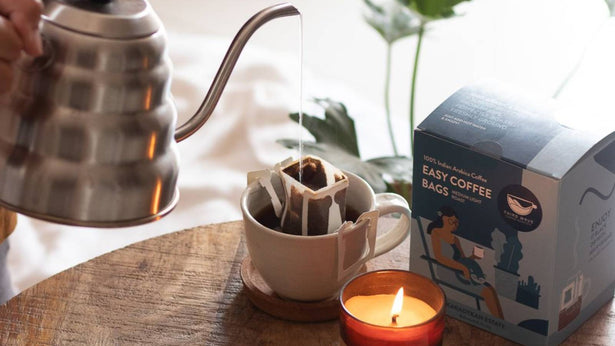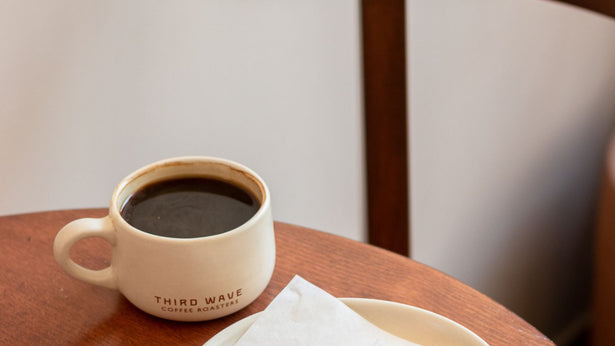Words cannot espresso how much coffee can alter your mood, your day, your existence. While the last part was a bit of a stretch, a day without coffee is depresso. But which coffee to have is a question that we have always asked ourselves as we stood in front of store aisles filled with a wide variety of coffee products from various manufacturers. Picking the right coffee can be challenging for something that appears so simple. But to be fair, there are so many different varieties of coffee. Well, one choice that you can never go wrong with is filtered coffee.
In essence, filtering coffee is pouring hot water over ground coffee to draw out its underlying flavors. Filtered coffee is often served fully liquid after the separation of the solid grinds. A cup of well-filtered coffee is the result of several factors. The amount of roasting, the size of the coffee grinds, and the amount of brewing time all affect your final cup o’ joe. The type of filter employed in the particular machine, in addition to the filtering method, can affect how well the process works. This process makes the beverage's texture better by giving it a fuller body to accentuate the flavors. There's no denying that filtered coffee provides an opportunity to appreciate the intricate blend of fruity, chocolaty, nutty, and fragrant notes that each bag of coffee beans is loaded with. But how exactly did it come to being?
Also read: Specialty Coffee: What Makes it So Special?
A Glimpse Into The History Of Filtered Coffee
Melitta Bentz would begin each morning with a cup of freshly brewed coffee, just like the person living in the flat next door and the one after that. Bentz, however, discovered that with each drink, she became frustrated rather than feeling more attentive and focused. The reason was that she was often irritated by the coffee grounds in her cup. Adding to this frustration the copper kettle also needed to be cleaned, along with the grounds that had adhered to the sides. Every morning, she dreamed about new methods to brew from her kitchen in Dresden, Germany. Until one day she tore a piece of blotting paper out of her son's school notebook and placed it in an old tin pot that she had pierced with holes. Many people will be familiar with what she did next: She topped it off with hot water and ground coffee. Through the paper and directly into the cup, the liquid trickled. The used paper filter was simply thrown into the garbage and there ended the need to handle nasty grinds, making cleanup easier and more hygienic. Birthed then was filtered coffee.
The tale has it that she hosted coffee afternoons where she tried her new creation on her acquaintances. Soon, Bentz and her husband immediately went into business when the Imperial Patent Office in Berlin gave her the patent for the paper filter in June 1908. The family's five-room flat in Dresden served as their base of operations. Today more than 4,000 individuals work for the Melitta Group globally. The business announced that it made 1.5 billion euros, or around $1.8 billion, in sales in 2017.
Despite their current popularity, her family was the only part of the "company's" modest cast in it’s early days. Bentz's children used a handcart to deliver items, while her husband set up displays in storefront windows to demonstrate the new system to customers. Later, he gave "demonstration ladies" this responsibility, a concept he picked up from his tenure as a department store manager. When Melitta and Hugo displayed their product at the Leipzig Trade Fair, which brought proprietors of housewares stores from all across Germany, the idea and the business officially took off.
There were likewise many bumps in the road ahead. Like the time when Bentz's husband and her older son, Willy, were enlisted when World War I started. During that time, her brother Paul Liebscher assisted her in managing the business, but it was now her responsibility to support the family financially. Bentz increased the production of paper cartons at the business. As a result, the business outgrew its facility in Dresden in 1929 and relocated to Minden in northwest Germany. This facility is still in operation.
During World War II, the business temporarily ceased making filters. By this time Melitta and her husband had retired; but, in 1941, they collaborated with the Nazi government to create war supplies as a "National Socialist model plant." Furthermore, the business made a contribution to a post-war scheme intended to recompense those harmed by the Nazis' policy of forced labor. Bentz passed away on June 29, 1950, four years after her husband.
Most Melitta locations still have a photograph of her on the wall, the mother of the corporation, the mother of Filter Coffees: Amalie Auguste Melitta Liebscher.
An Experiment for her and Happiness for us
As we have seen, the genesis of filtered coffee commenced with a regular German woman who simply wished to sip some coffee without getting any grinds in her mouth. Unbeknownst to her was that she had concocted a beverage that is to bring happiness to many generations. Pouring over, as it is sometimes known, is a technique for making this coffee, although it is only one of the ways that coffee is filtered nowadays. There are many ways to prepare filter coffee at home and there are even more versions of it, such as the signature south Indian filter blend, which is regarded as the best filter coffee by many Indians. Regardless of the filter or brewing technique used, the best-filtered coffee can only be made with the highest quality coffee beans. And we are the best in town for good coffee. Coffee is an art and Third Wave Coffee is the artist. Being the best coffee brand in India, whenever you need a good pour, we are at your door. Buy the best filter coffee beans now.
Also read: How to make authentic South Indian Filter Coffee
